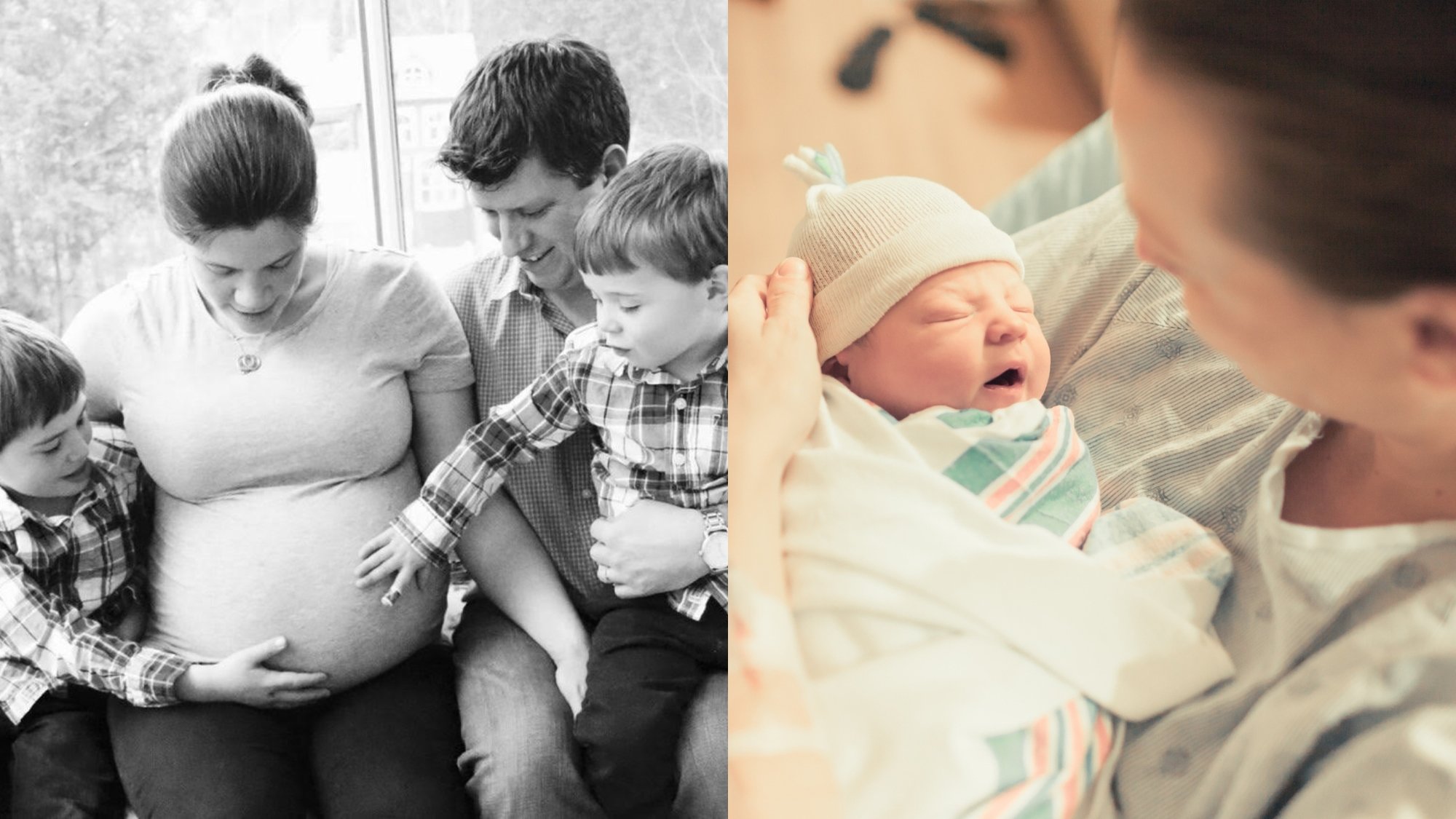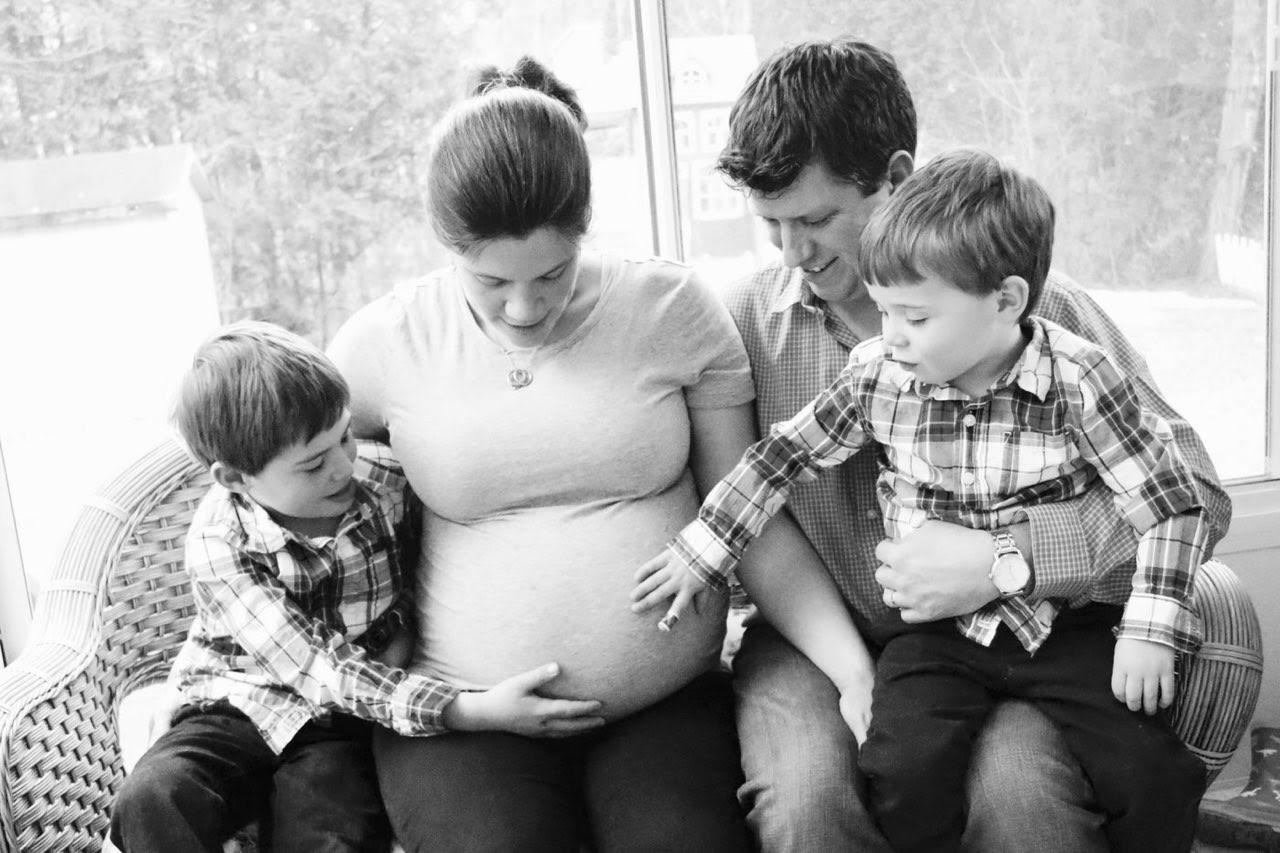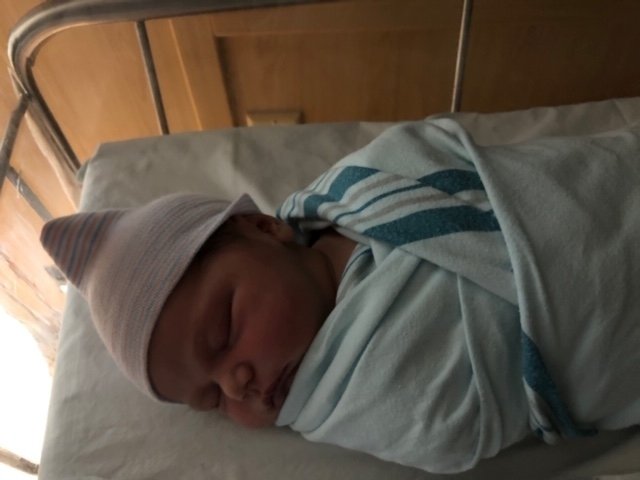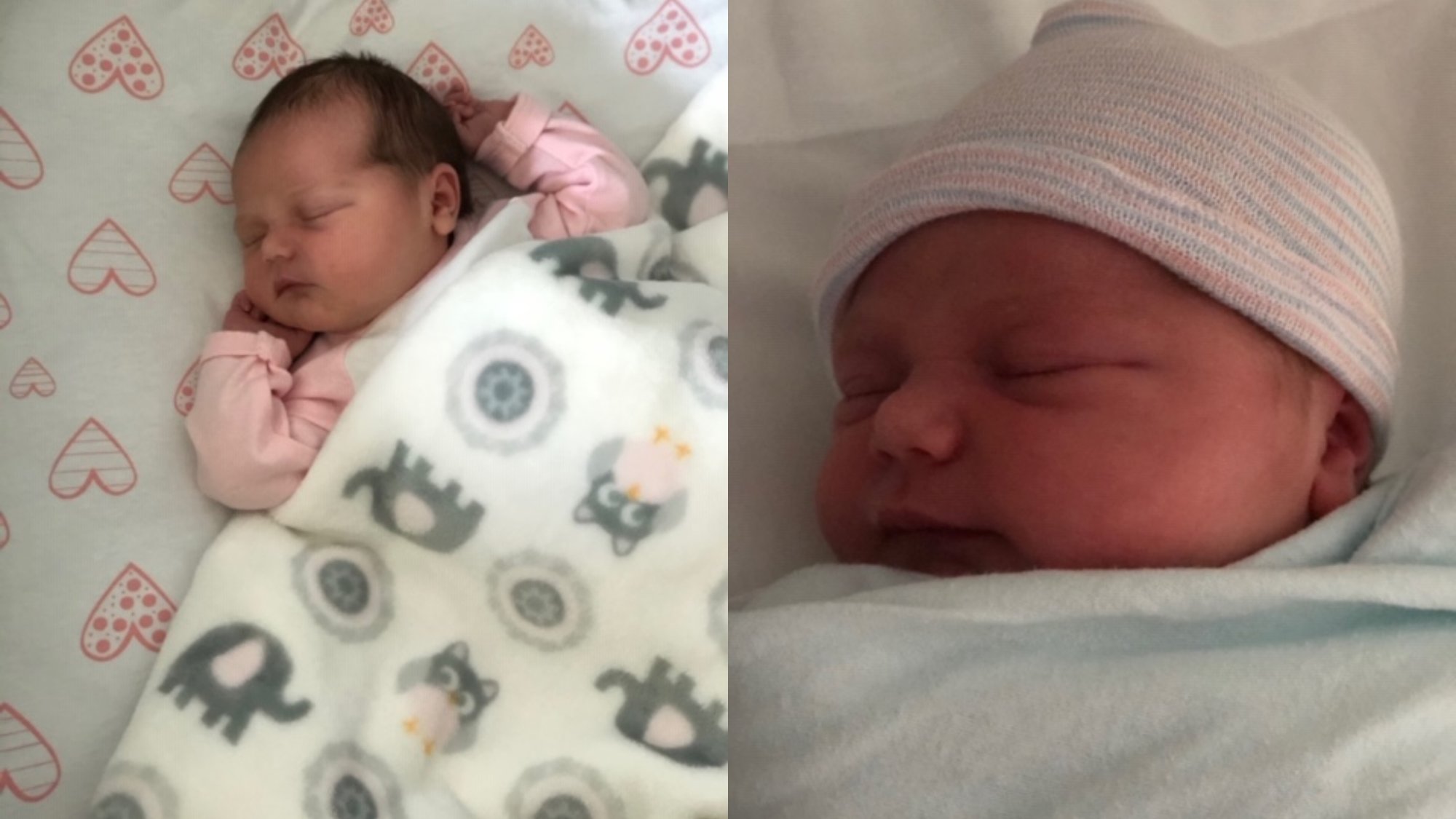
The last time Dorothy Stanford gave birth, her worries were more or less the same as most first-time moms: What if I'm far from home when I go into labor? What if the epidural doesn't work? And, most pressing of all: What if complications prevent me from seeing my baby right away?
It was late January 2018, that tricky time of year when a New York snowfall could throw the tristate area into a panic, making the trek from Queens to her Long Island hospital a messy, gridlocked nightmare. But luckily, none of her fears came to pass. Now, some two years later, she and her husband, Dennis, are expecting their second little girl — except this time, they're bringing her into a much different world. Thanks to the coronavirus pandemic, Dorothy's main worry now is one she never even thought she'd have to consider: Will my husband even be allowed in the room when our baby is born?
As the coronavirus pandemic tightens its grip on the US, many hospital systems are making major protocol changes.
That's especially true in New York, the current epicenter of the crisis, where more than 26,300 cases have been confirmed as of this writing. (To put that in perspective, CNN reported that the Empire State's "attack rate" is more than five times that of the rest of the nation.)
As a result, hospitals are under an enormous amount of strain to handle the influx of new patients and contain the virus while supplies of ventilators and protective gear are running lower by the day. Elective surgeries have been canceled in New York (as well as in many cities and states throughout the nation), and on Tuesday, news broke that two major New York City-area hospital systems are taking things even further when it comes to labor and delivery.
According to the Wall Street Journal, NewYork-Presbyterian and Mount Sinai are banning partners from the delivery room as a precautionary measure.
Make no mistake, the implications of this are huge for mothers and families in the NYC-area — and elsewhere, if more hospitals follow suit.
NewYork-Presbyterian is comprised of a network of 10 hospitals, which help deliver some 15,000 infants a year, according to a spokesperson who spoke with WSJ.
After much deliberation, the hospital system made the call to not permit visitors, which includes partners, this week.
“We understand that this will be difficult for our patients and their loved ones, but we believe this is a necessary step to promote patient safety,” said the spokeswoman, who the newspaper did not name.
According to WSJ, obstetricians and midwives were informed of the changes at Mount Sinai, which has a network of eight hospitals, during a conference call Monday. The hospital system delivers roughly 16,000 babies each year.
The hospital defended the decision by saying it's to “protect our patients, their families and their new babies.” But many feel it goes too far.
Kristie Breakiron says she was "shocked" but not surprised when she started hearing that hospitals were taking this route.
Breakiron is a doula serving southwest Pennsylvania, as well as a medical professional working in outpatient cardiology and surgery. She tells CafeMom that her job as a health care worker has kept her "well aware of the implications going on during this pandemic." But that doesn't mean it's not disheartening.
"I feel deeply saddened by these bans," Breakiron says. "Pregnant women have been exposed to their partners on a daily basis before going into labor. Entering the hospital doesn't change this."
The ban doesn't just mean that family members are shut out -- it also means that doulas and other birth support are no longer permitted.
To Breakiron, the negative impacts here seem endless.
"Birth is a high anxiety time for most mothers," she tells CafeMom. "As a doula, we are there to be the calm and reassuring face. The person holding space for them, working with their partners helping them navigate through the journey into motherhood. Whether it be their first or sixth time. Not having a familiar and comfortable support person with them during their birth can be traumatizing — for mothers and fathers alike."
Although she understands the reasoning behind the measure, she doesn't understand why a simple screening process can't take place before allowing partners into the delivery room.
"Fathers will be missing these life changing moments," Breakiron continues. "These are moments you don't get back. You don't get a redo."
For pregnant mothers like Dorothy Stanford, it's hard to even fathom this possibility.
Her hospital, which is part of the NYU Langone Network, has already banned extended family from visiting, which is upsetting enough.
"When my first was born, everyone was able to come meet her within the first few days of life," she explains. "With the pandemic, I'm not sure when everyone will meet this new little one."
But now, after hearing that her hospital is also considering the partner ban, Dorothy's anxiety has been heightened for days. Her husband has already been blocked from attending OB appointments with her (for the last one, he had to wait in the car), which makes her less than optimistic. Unless she goes into labor early, she is due to give birth March 31 via a scheduled C-section. But as the days inch closer, the question over whether her husband will even be there still looms.
"My doctor assured me that most obstetricians are pushing back on that, but I am so scared of going through this alone," she tells CafeMom. "A C-section is scary enough and my husband was so wonderful during my first. I also hate the idea that he would have to wait to meet her."
She's certainly not alone in her fears. This week, Good Morning America spoke to several New York women who are due to give birth soon.
One of them was Jen Santamaria, a New York City mom-to-be who is 30 weeks pregnant with her first child and due to give birth at NewYork-Presbyterian.
"I'm a wreck and just trying to hold it together and take one day at a time," Santamaria told GMA, adding that not having her husband there is her biggest fear.
"Truly, I have no idea how I'm 'supposed' to feel," she tweeted on March 17. "At first I was really calm and over the last few days, everything has changed. I'm scared. I'm anxious."
Along with thousands of other New York City women in the same boat, Santamaria joined the newly formed Facebook group Pregnant During the COVID-19 Pandemic. Together, the group's nearly 12,000 members are leaning on each other for support during a time that many expected to be happy and filled with anticipation. Instead, it's filled with worry, dread, and panic.
"Inhale courage. Exhale fear," the group's background image reminds them.
"The most common concerns [of members] at this time tend to be the uncertainty of being able to have support at the time of delivery, giving birth during a pandemic and the emotional stress that goes with keeping a newborn safe," Lynzy Coughlin, an emergency medical physician assistant who founded the group, told GMA.
Many of these mothers are also understandably worried about their baby contracting the virus somehow -- either during birth or soon after.
Doctors simply do not know enough about COVID-19 yet to say for certain whether the virus can be passed on to a baby during pregnancy or delivery, according to the Centers for Disease Control and Prevention. What is known, however, is that no infants born to mothers with COVID-19 have tested positive for the virus themselves. In addition, the virus has not been found in samples of amniotic fluid or breast milk, in cases where a mother had COVID-19.
Much of this could be because unborn babies are protected by a mom's antibodies, which gives them a natural defense in utero. Although there have been a few cases in which an infant tested positive for COVID-19 soon after birth, experts believe these may be due to environmental exposure rather than maternal infection, the CDC reported.
For new moms like Jessica, the outbreak didn't change her delivery as much as it changed everything that came after it.

Jessica is an elementary school teacher and mother of two from Vermont, who asked that CafeMom not share her last name. When she gave birth to her second child, Addilyn, at 1:32 a.m. March 12, it was only a few hours after the World Health Organization had labeled the crisis a pandemic and President Trump issued his first address to the nation.
She says she gave birth quickly, just three hours after going into labor, and was somehow able to push the outbreak to the back of her mind while giving birth — even though a confirmed case was in the same hospital. That's probably because in many states, March 12 was the last day of living "normally."
When she entered labor and delivery, Jessica and her husband were quickly screened, with nurses asking questions about their travel history, but visitors were still allowed.
"However, the very next day (the day we were discharged), that changed. When I left on March 13, there was a two-visitor rule, and your support person was included in that number. Additionally, no one under the age of 16 could visit, and your visitors had to be the same two people throughout your stay — you couldn't switch people."
"The hardest part about being in the hospital this time was not being able to see my other children," she says.
"This was a personal choice on March 12, but one that was very difficult," she says. "My boys were staying with my parents and my father is immunocompromised. We decided it was best to not take any risk by bringing my children or my parents up to the hospital. This was really hard on me and it made the hospital visit seem more isolating."
In the meantime, she was watching the headlines about COVID-19 continue to roll in — and was having a hard time keeping her rising anxiety at bay.
"Bringing Addie home was definitely different than I'd expected," she recalls. "Instead of introducing her to family and friends, I've been keeping her away from everyone. We are thrilled with her arrival, but it's weird to not get to share that joy and excitement with others."
Just like millions of US families right now, Jessica's is self-quarantining.

The toll this has taken on her in the days after giving birth has been "emotional and isolating," she tells CafeMom.
"Every day it seems like something new comes out, so we are now Cloroxing everything that comes into the house," she says. "Maybe it's extreme, but I worry constantly about having my kids exposed, especially my newborn."
For now, US moms and moms-to-be face a slew of new realities they never could have imagined just weeks ago.
But just like the rest of us, they are struggling to see silver linings wherever they can — even if that means finding it online.
Dorothy, much like Santamaria, has found a safe space in Facebook mom groups, where many local moms are facing similar realities.
"I'm part of several online groups for new and expectant mothers, and across the board the unknown is really scaring us," Dorothy says. "The groups I'm in are comprised of lovely and supportive women, and we are doing our best to support and reassure one another."
Then again, she adds, "since we are in uncharted waters, it can be hard to not just all freak out."
To combat the negativity, she says she's doing her best to limit her news intake and not read every headline or news alert she sees.
_"_Whenever I do read something that sets me off, I try to find something funny to read or watch right after," she notes. "I can't change anything that is about to happen and it's obvious this will not be solved before my baby is born, so I need to remind myself to just breathe and keep going!"
As for Jessica, she says Addie is "a bright spot in this crazy world" right now, and says she's ultimately grateful her baby arrived when she did.

"I'm worried for my children, but I know we'll get through it — we just have to take one day at a time," she shares. "I'm trying to count my blessings every day and focus on what I can control. As a mother I feel like my No. 1 job is to protect my children, and that's what I'm trying to do to the best of my ability."




